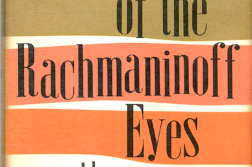I DO NOT remember being surprised as a high school student in the turbulent 60’s when I learned that W. H. Auden was gay. A few years later, as I was attempting my own “out” life in the East Village, Auden would pass by me, scuffling home, always in the same gray suit and reddish carpet slippers, as I headed in the opposite direction to my bookstore clerk job. I knew not to speak to him. Once, at a poetry reading at the 92nd Street Y, someone asked why he changed the line “we must love one another or die” to “and die,” and he replied, “Because we must all die anyway!” Personally, I preferred the original words, which were illogical but emotionally true. There was something grand in the over-the-top ending that I now understand signifies “camp.” So perhaps it was Auden’s language that let me know he was gay.
This language appears in his love poems of the 30’s, and it captured my attention. Later, as I began to meet older members of the gay community, I grew fonder of the poems because I was learning the spoken social codes of male–male love. My favorite, “Lullaby,” values temporary, imperfect relationships.
Auden wrote “Lullaby” when he was a very different man from the avuncular expatriate that he later became. Its 1937 version is personal and uneven. The later six revisions make the work more general, as if the poet wanted a neutral voice for a larger audience. I prefer the first published version, which keeps to the poem’s original social context.
The first words of “Lullaby”—“Lay your sleeping head, my love,/ Human on my faithless arm”—transformed my gayness and became my mumbled prayer back when I was an immolated princess scouring the horizon. They made me—my nostalgic, older friends said—pure camp and admirable. Yet my youth embittered me by ruling me loveless and secretive. So, although accustomed to ridicule, when the poem says, “Grave the vision Venus sends/ Of supernatural sympathy,/ Universal love and hope,” I indeed longed to pay the entire cost of experience. My desire had a religious aspect that was as arousing as the legends of martyrs because the mob also stalked me, for sharing the Divine Body with true believers.
Auden’s poem warned me, though, that I was speeding along too fast. The last stanza calls for new days that “find the mortal world enough,” and I wanted magic. Yet, this fever saved me, for as much as I wanted to be an artist, I wanted to be Auden’s worldly speaker. Instead, because I was still “today’s trade,” I needed to start living. In those days of mimicking camp attitudes, I missed that Auden himself had been too young for his poem’s counsels. He was being campy in order to join agape and eros, the sacred and profane types of love, knowing that society deemed his love extra-ordinary, although it played a part in God’s universally ordinary love.
Then how should the gay poet speak of love? The poet must “play for time.” He has to avoid the idea that homosexuals practice a repugnant sexuality. Then he can lead the reader to discover another interpretation of what is forbidden. Obviously, the poet must be someone who feels that his love is truly decent in its expression. For someone like Auden, who freely used words like “bugger,” love could never avoid the real nature of things. Literary scholar Gerald Nelson reveals that in the 1930’s Auden “believed in the possibility of reform both in the individual and in society” and that the poet should teach the community. Yet early Auden was not quite fully himself to himself, so the evasive tactic of imitating the lyrics of popular culture became a means to that end. Nevertheless, camp is always for real in its social posture. For instance, Auden could appreciate the camp in his marriage of convenience to Erika Mann, which resembled the poems in which his references to women in truth meant men. Nevertheless, like those references, his marriage represented a life-affirming act of resistance, in this case, against Fascism.
In the 1930’s, Auden’s “compelling” poems grew out of a feeling that he was unlovable, though he easily found sexual partners. He thought that he would really need the marriage he later made with Chester Kallman, with all of its boredoms and rewards. Until then, love was just a fever.
So, “Lullaby” is pure camp because its speaker offers the beloved no security. How could he? In the New Writing 1937 version, a consequence of the oppressive culture’s restriction of homosexuality was its insistence that the poet demonstrate membership in its language of sanctioned love. However, camp speakers express that other knowledge exists. Consequently, like an old song, “Lullaby” proposes: “But in my arms till break of day/ Let the living creature lie,/ Mortal, guilty, but to me/ The entirely beautiful.”
In order to overcome this lack of conviction, Auden studied for a while with men like Homer Lane, who taught that society’s suppression of man’s “natural” instincts had to be put aside. That is why “Lullaby” urges that the community not separate itself from the accident of love, which can happen to anyone, anywhere. For the time being, because man is a social animal, the poet signifies his meaning in order to enter into the social discourse.
In “Lullaby,” I now see Auden—now that we stand up publicly for ourselves as equal members of society by our capacity to love—as a sexual lover of a particular man for a moment in time. When I was young, my appreciation of the fragility of that effort did not yet match the early Auden’s intimation that my extraordinary love was “simply divine.”
Rolando Jorif teaches English at CUNY.




